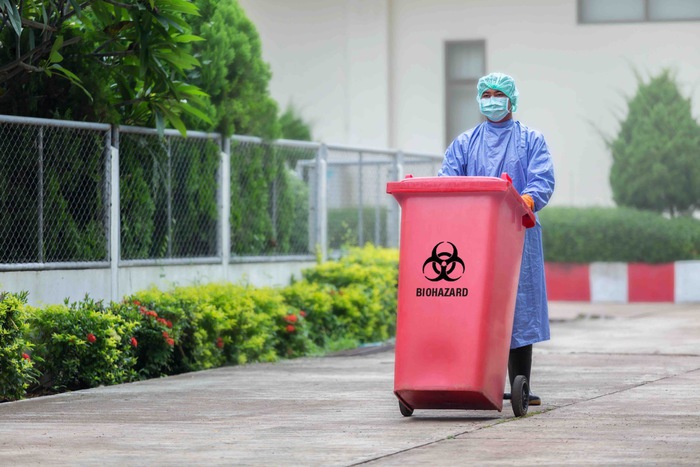Beyond Dawlish

In the realm of healthcare, the role of a Medical Waste Disposal Company is pivotal in maintaining a safe and healthy environment. Proper disposal of medical waste is crucial for preventing infections, protecting healthcare workers, and ensuring environmental safety. This article outlines the best practices for a Medical Waste Disposal Company to ensure efficient, compliant, and environmentally responsible operations.
1. Understanding and Complying with Regulations
A Medical Waste Disposal Company must be well-versed in the local, state, and federal regulations governing medical waste. This includes understanding the guidelines from agencies such as the Environmental Protection Agency (EPA) and the Occupational Safety and Health Administration (OSHA). Compliance with these regulations not only ensures legal operation but also promotes safety and trust among clients.
Key Steps:
Regular Training: Ensure all employees are trained on the latest regulations and compliance requirements.
Compliance Audits: Conduct regular audits to ensure adherence to all applicable laws and regulations.
Documentation: Maintain meticulous records of waste handling, treatment, and disposal processes.
2. Implementing Effective Waste Segregation
Proper segregation of medical waste at the point of generation is fundamental. This practice reduces the risk of contamination, simplifies disposal processes, and minimizes costs.
Key Steps:
Color-Coded Containers: Use standardized, color-coded containers to separate different types of waste (e.g., sharps, biohazardous waste, pharmaceutical waste).
Clear Labeling: Ensure all containers are clearly labeled with the type of waste they contain.
Employee Training: Train healthcare facility staff on proper waste segregation techniques.
3. Ensuring Safe Collection and Transportation
The collection and transportation of medical waste pose significant risks. A Medical Waste Disposal Company must adopt stringent safety measures to protect employees and the public.
Key Steps:
Personal Protective Equipment (PPE): Provide and enforce the use of appropriate PPE for all employees handling medical waste.
Secure Containers: Use leak-proof, puncture-resistant containers for the collection and transportation of waste.
Transport Regulations: Adhere to Department of Transportation (DOT) regulations for the transport of hazardous materials.
4. Utilizing Advanced Treatment Technologies
Employing advanced treatment technologies is essential for the effective and environmentally friendly disposal of medical waste. Technologies such as autoclaving, incineration, and chemical treatment ensure that waste is rendered harmless.
Key Steps:
Technology Selection: Choose the appropriate treatment technology based on the type and volume of waste.
Regular Maintenance: Perform regular maintenance and calibration of treatment equipment to ensure optimal performance.
Environmental Impact: Assess and minimize the environmental impact of treatment processes.
5. Maintaining Robust Tracking and Documentation Systems
Accurate tracking and documentation are crucial for compliance, accountability, and efficiency. Implementing a robust system ensures traceability from waste generation to final disposal.
Key Steps:
Electronic Tracking: Use electronic tracking systems for real-time monitoring and documentation.
Record Keeping: Maintain comprehensive records of all waste management activities, including collection, transportation, treatment, and disposal.
Auditable Trail: Ensure an auditable trail is available for regulatory inspections and internal audits.
6. Fostering Continuous Improvement
A culture of continuous improvement ensures that a Medical Waste Disposal Company remains at the forefront of industry standards and best practices. Regular evaluation and adaptation lead to enhanced efficiency and safety.
Key Steps:
Feedback Mechanisms: Implement mechanisms for receiving feedback from clients and employees.
Performance Metrics: Regularly assess performance metrics and identify areas for improvement.
Training and Development: Invest in ongoing training and professional development for employees.
Operating a Medical Waste Disposal Company involves navigating complex regulations, ensuring safety, and implementing efficient waste management practices. By adhering to these best practices, companies can provide reliable and environmentally responsible services, protect public health, and contribute to a safer and cleaner environment. Continuous commitment to improvement and compliance will not only enhance operational efficiency but also build trust and credibility in the healthcare industry.




